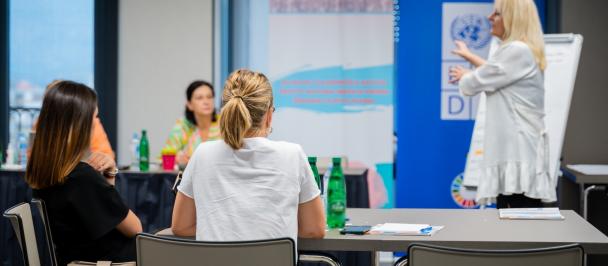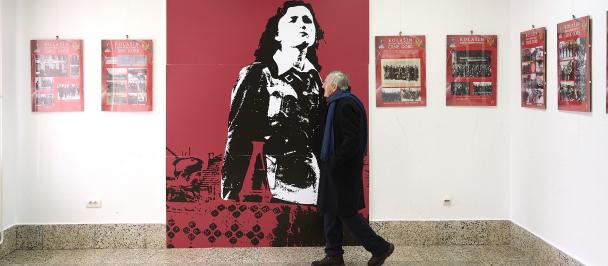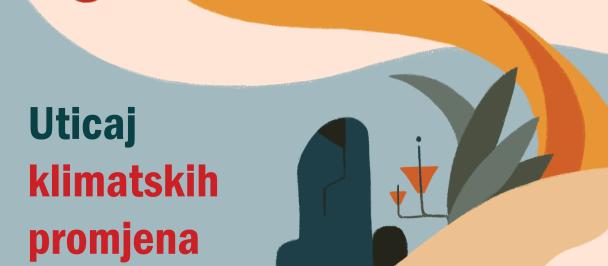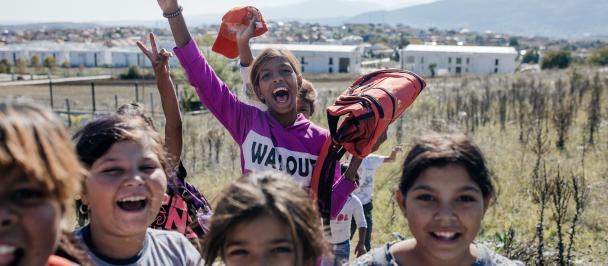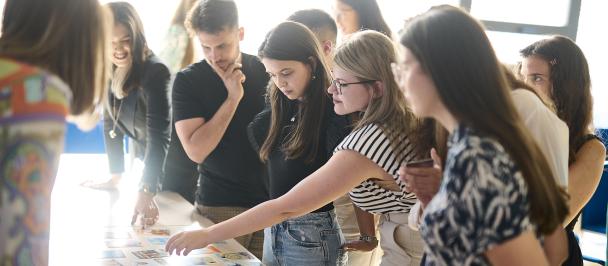The necessary empowerment of women in public and political life
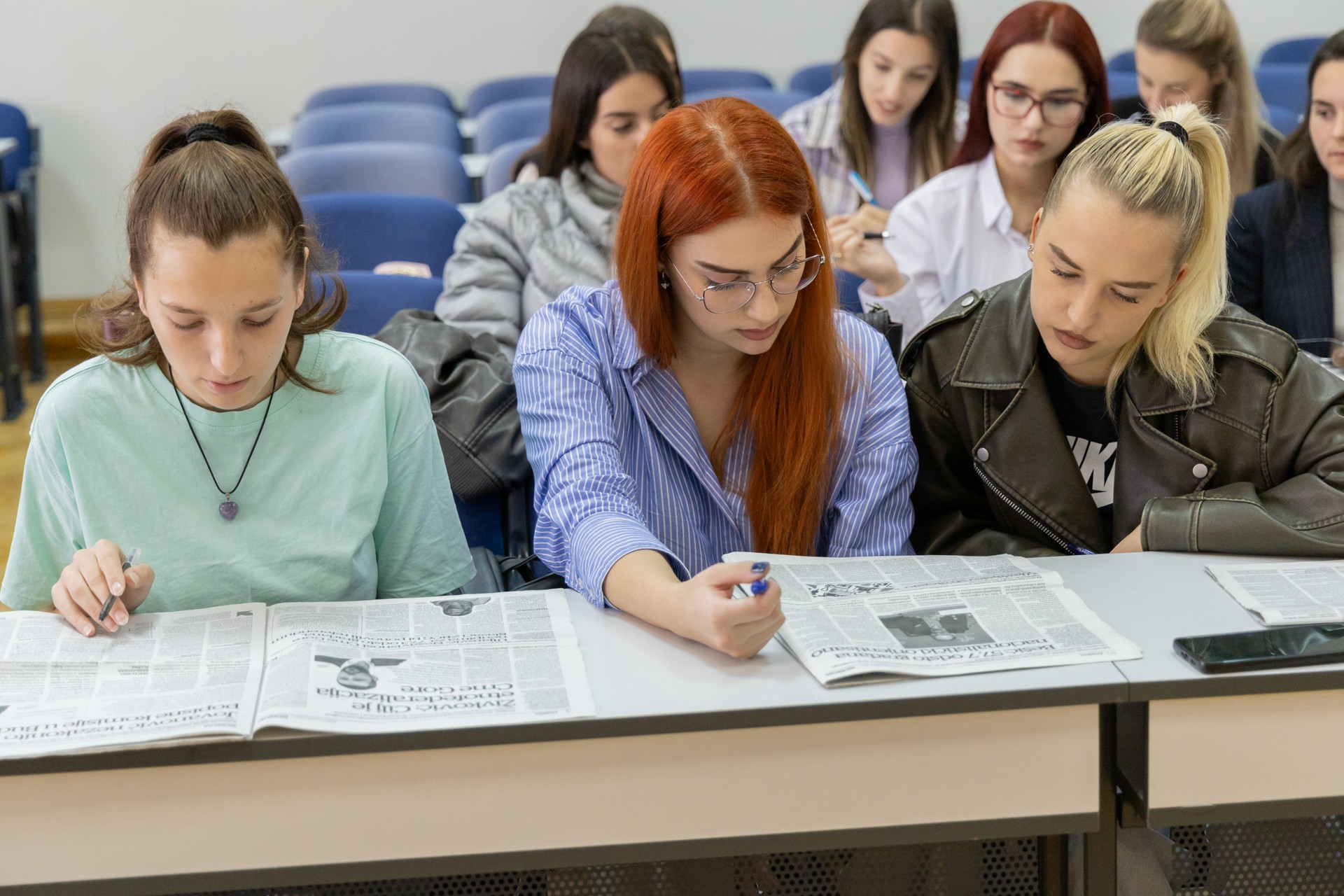
Last year, we have worked with students of journalism and their assistant professor Jovana Davidović on combating sexist hate speech, sexism and misogyny. Our spectacular #NextGen gender equality advocates and young journalists Jovana Damjanović, Marija Pešić and Željka Zvicer, with support of Marija Blagojević from UNDP, held workshop on sexism and gender equality to the journalism students at Faculty of Political Sciences. As a follow up, students have further researched the topics and have written blog posts on various related aspects. We are proud to feature young voices promoting gender equality!
The best blog post written by Aleksandra Despotović:
“It is interesting that Montenegro is known for a large number of women who left historical traces in the development of our country. I am proud that the women who grew up 'on the Montenegrin karst and land' are fearless, both in the past and today.”
This is how Marko Vulević, who was declared the best student of the Faculty of Political Sciences by the University of Montenegro, started the conversation on the topic of gender equality.
Men are still dominant in Montenegrin politics
The turning point for the participation of Montenegrin women in public life, i.e. politics, was recorded in 1946 – when they got the right to vote. Although progress has been made since then, there is still a large imbalance in representation and power between men and women in the political sphere.
Out of 81 seats in the highest legislative body, we currently have as few as 22 female MPs, which represents slightly more than 27 percent. The majority of the population is aware of this very devastating fact. Still, it seems that, unfortunately, they run away from it, "tucked away" in their patriarchal beliefs, which are based on underestimating the personal, as well as the professional capacities of girls, women, and later women. Why? Because they were taught from an early age that the man is the “head of the household”, that he makes all the important decisions for the family independently, and that the woman is the foundation of the home, that her role is to take care of the children and their upbringing, and that female children have minimal rights.
Stronger influence of a woman leader in society - a “more attractive” reason for an attack
Being a woman in politics also means facing numerous challenges – misunderstanding of relatives, friends, and the environment due to "obligations towards the family" (unpaid work); with prejudices that women are bad politicians and that lower levels of activity are more suitable for them. Also, a big issue is reflected in sexual objectification. All this can affect, ie. demotivate young people, especially girls, who want to perform functions in the public sphere in the future.
“Women are not forgiven for anything just because they are women, especially not for their success”, is an interesting statement by Marko Vulević.
Participation in UNDP initiatives, such as the Next Generation and ReLOaD, helped Vulević develop a broader picture of the multifaceted nature of gender equality issues. "A wonderful team with truly outstanding knowledge and skills worked on those programs. I met so many wonderful, inspiring young people who are already changing Montenegro for the better. They fight for a better tomorrow, selflessly. No one is afraid to talk about the problems they keep quiet about. I admire them for that", he explains.
The fact that awareness-raising has yet to reach the broader population, is also shown by the example of the president of the Social Democrat Women's Forum, Ivana Raščanin-Radičević, who during her political involvement faced various prejudices about women in politics, such as the one that women are insufficiently capable of being leaders.
“The competencies of women in politics are often questioned. There are still a small number of women in decision-making positions, and with the growth of the influence of some women leaders in society, the attacks in various forms are intensifying to push her out of the sphere that is perceived as male-dominated and return her to the field she “belongs” to – the house and caring for others", said the president of the Social Democrat Women's Forum and trainer for gender equality, who is also one of the coauthors of the UNDP research “Violence against women in politics in Montenegro”.
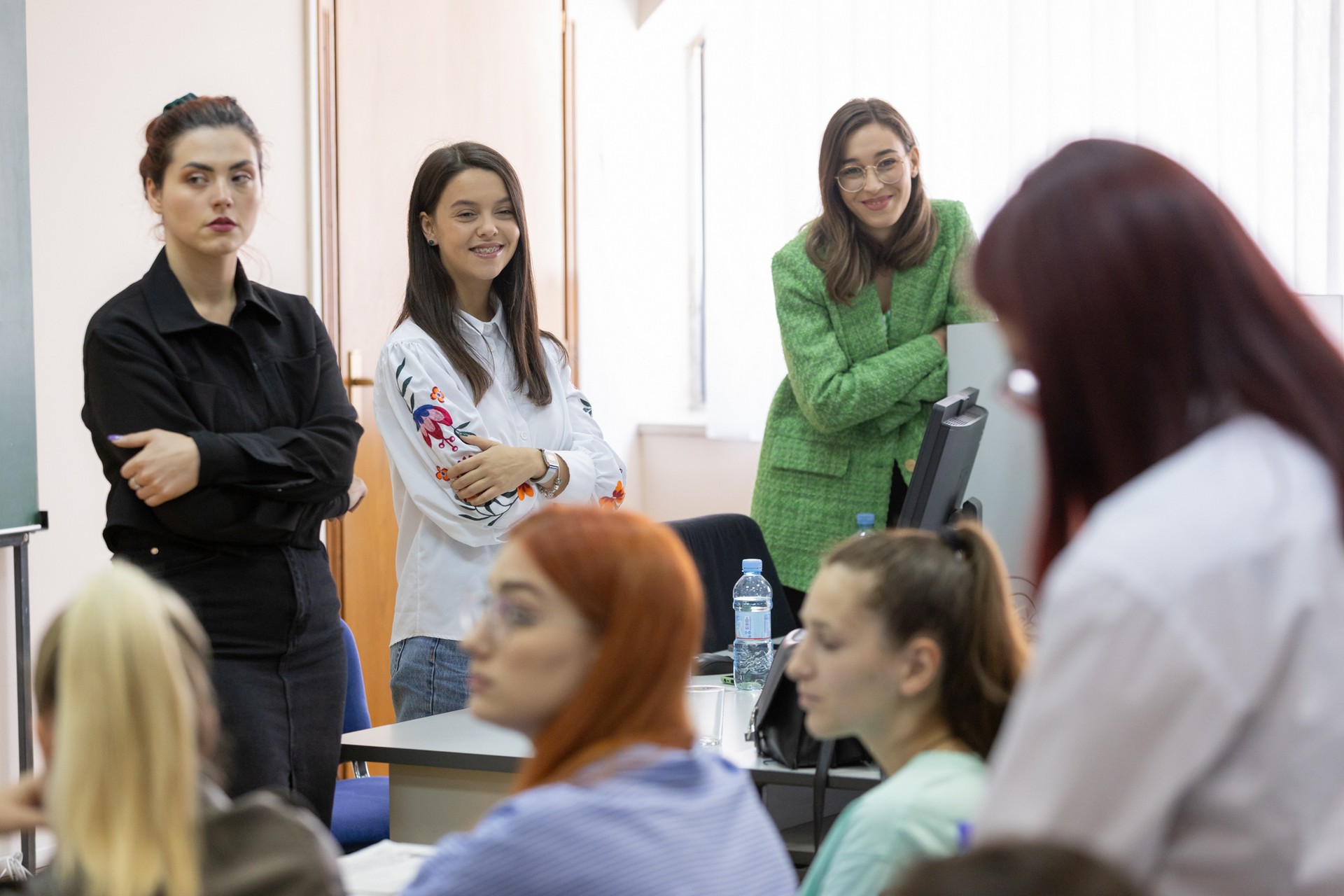
Media – advocates of discrimination or a tool aimed at raising awareness?
Patriarchy “supported” by media content, as well as social media, undoubtedly influences the consumers, marketing discrimination, misogyny, and sexism directed at women. An attack on one public speech advocate – endangers all her colleagues, at the same time.
Sexism in the media is a form of gender discrimination that manifests itself through the reproduction of stereotypes, the use of terminology that emphasizes the traditional role of women, and the non-use of legally required gender-inclusive language.
They often emphasize the appearance and the style of women politicians, so we witness situations where comments are made on their hairstyle and the way they dress, neglecting their political ability and achievements, while on the other hand, when we talk about their colleagues, these comments are not present.
“Nine out of ten female politicians have been discriminated against, seven out of ten have experienced some kind of violence, while nine out of ten of them have been discriminated against in media reporting or their portrayal through the media”, says Raščanin-Radičević.
She expressed her concern about the increasingly frequent selective defenses in political life.
“We must not give space to sexism, misogyny, and sexist hate speech, because such offensive statements violate the fundamental values of equality and respect. It is necessary to be united and indiscriminate in the fight against such forms of hate speech, to condemn it, and to adequately sanction those who spread it. We must work together to create an environment where everyone is treated with respect, regardless of gender”, she explains.
She also believes that there is still room for improving the representation of media content that promotes and raises awareness of gender equality in Montenegro, with an emphasis on topics such as the position of women in politics, their achievements, and the challenges they face.
“It is important to include different perspectives and voices of women in decision-making positions”, concludes Raščanin-Radičević.
Vulević: Labeled women become pronouns
It seems that gender equality in the political system is a very interesting topic for society and the media, but it is also insufficiently covered.
#When there is a scandal or a media affair, women become pronouns, not all other kinds of words. They are described with a pronoun. They are: the one who dressed provocatively, the one who is someone's mother, the one who is someone's daughter... Enough of this narrative. Women are also nouns and adjectives and conjunctions and exclamations, all of them, and by no means only (possessive and descriptive) pronouns. When they are insulted, they are not insulted based on their qualities (or lack thereof), but based on their gender and sex. It should be eradicated from both Montenegrin and global patterns of behavior”, Vulević believes.
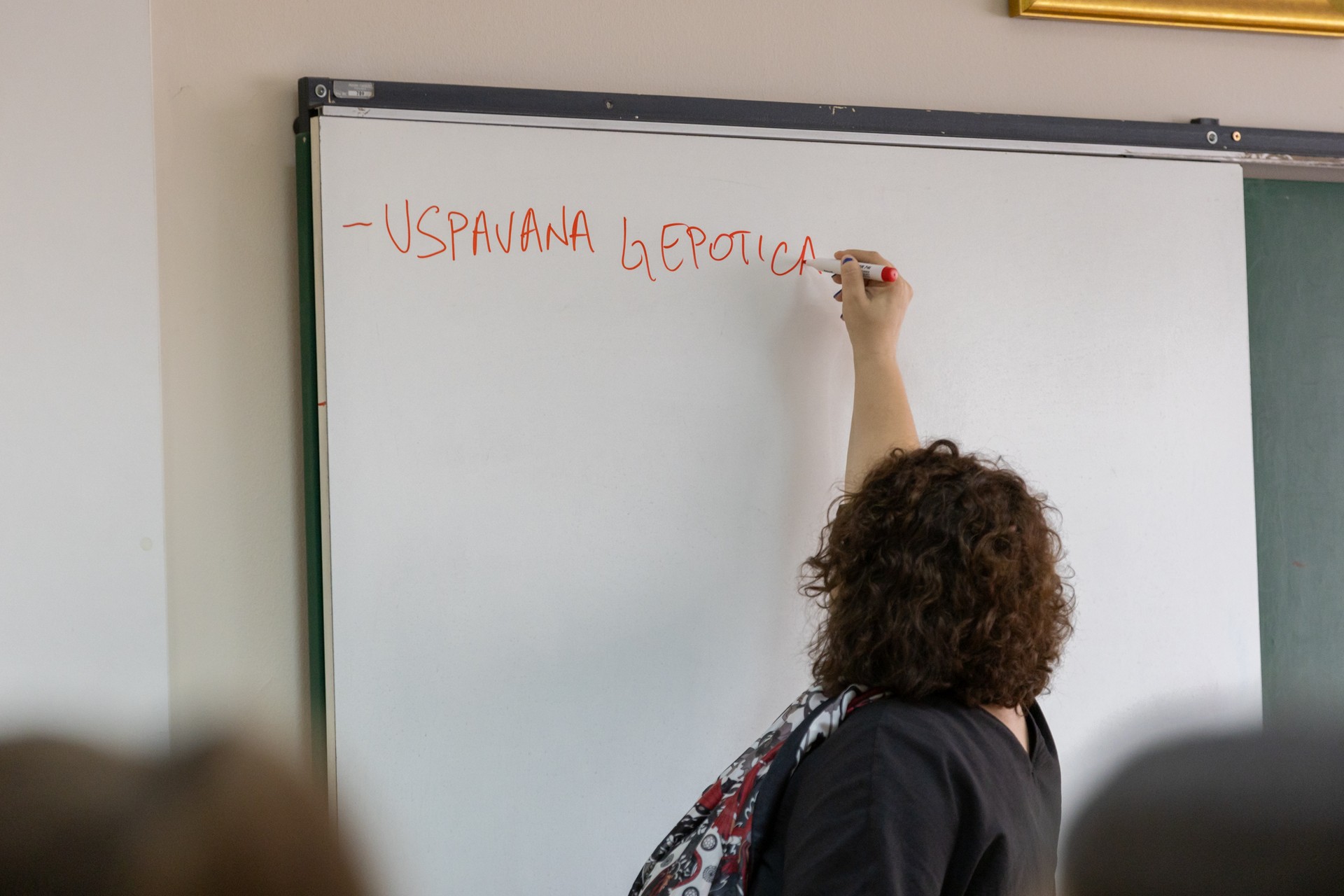
Too many words, too few actions
We are witnessing frequent occurrences of media pressure and attacks on Montenegrin politicians which disturb the public. However, it seems that we are not learning enough from these examples of misogyny.
Thus, everything remains “on paper” only, and social media platforms, such as X, formerly known as Twitter, increasingly contribute to sexist hate speech. We are ready to condemn everything, to say that women should never be the subject of inadequate media stories, but, unfortunately, concrete steps are not being taken to stop this type of hate speech.
Based on the results so far, is a better future approaching?
The Ministry of Human and Minority Rights created the National Gender Equality Strategy 2021-2025. As they state, this is, in addition to the Law on Gender Equality, the Law on Prohibition of Discrimination, and the Law on the Protector of Human Rights and Freedoms, a document aimed at establishing a better framework for achieving gender equality in Montenegro. By adopting these laws, as well as by ratifying international treaties, Montenegro establishes a legislative framework for the implementation of gender equality and creates a basis for the promotion and protection of women's human rights and the human rights of persons of different gender and gender identities.
I emphasize the Law on Gender Equality, which was adopted in July 2007 to contribute to the equal participation of both women and men, as well as persons of different gender identities, in all spheres of the public and private sectors. Furthermore, it advocates for equal positions and equal opportunities for exercising the rights and freedoms of all citizens of Montenegro, as well as for the use of personal knowledge and abilities for the development of the society and the realization of equal benefits from the results of work, regardless of sex and gender.
When it comes to raising awareness of gender equality, female politicians are given great importance by numerous institutions, political networks, as well as non-governmental organizations. In this process, it is important to work on raising the level of media literacy, and the critical, reasoned interpretation of the messages that are sent to us.
Finally, it is important to emphasize the necessary solidarity among young people, students, and women.
“I hope that one day a more equal tomorrow will come, and until then it is up to us to create changes at different levels. I can call this transition 'the dawn of a better tomorrow'. The goal is to educate the citizens of Montenegro about the importance of gender equality. In Montenegro, for example, we have never had a female president. It is up to us to change all that”, concludes the best student of the Faculty of Political Sciences, Marko Vulević.
Young people should be agents of change
As a student who aspires to professionally engage in journalism, I believe that education, gaining knowledge and experience, and involvement in political and public life through various forms of activism, are of crucial importance for changes in our country.
Raščanin-Radičević, is of a similar opinion, stating that young people should be agents of change, advocates of gender equality, justice, and equality in all spheres of society and that they need to understand that the most important thing in life is to have a choice. “We must not allow the hard-earned rights that our predecessors fought for throughout history to be shaken.”

 Locations
Locations